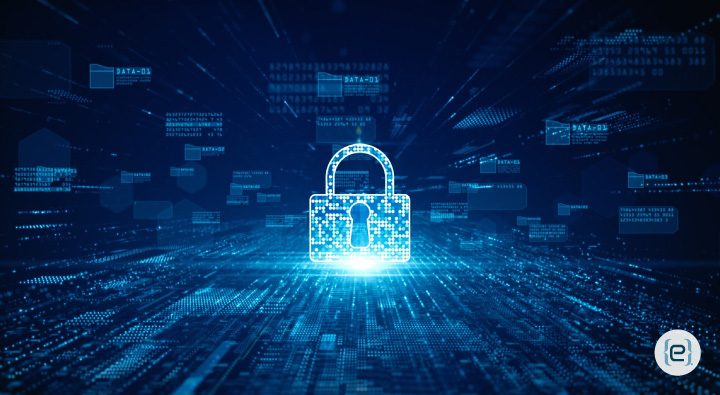With our digital world expanding and cyber threats evolving at breakneck speed, cryptographic systems remain the bedrock of your data security and privacy. But the rise of quantum computing, proliferation of Internet of Things (IoT) devices, and rapid advancements in artificial intelligence (AI) are fundamentally transforming cryptography. To protect your business, you need to understand the new challenges and the innovations shaping the future.
Key Challenges Reshaping Cryptography
The Quantum Computing Threat
Quantum computing poses a direct challenge to traditional cryptographic systems. Algorithms like RSA, ECC (Elliptic Curve Cryptography), and Diffie-Hellman rely on mathematical problems that are difficult for classical computers to solve. Quantum computers, however, could solve these problems in a fraction of the time, rendering these algorithms obsolete.
-
- Implications: If public key cryptography is broken, the security of HTTPS, VPNs, and secure email will collapse. Sensitive data protected today could be exposed once quantum computers reach practical scale.
- IoT Devices: Security vs. Performance: The rapid growth of IoT means billions of devices, each with limited resources, now require lightweight and efficient cryptographic solutions. Standard algorithms can be too resource-intensive, leading to energy and performance issues.
- Challenges: How do you balance robust security with the limited processing power of IoT devices? Securing communication between billions of interconnected devices is an urgent concern.
- AI-Powered Attacks
Attackers are leveraging AI and machine learning to break into cryptographic systems using side-channel attacks and other advanced techniques. These methods can extract secrets without directly attacking the encryption algorithm itself, raising the stakes for organizations to stay vigilant.
Innovations Defining the Future of Cryptography
-
- Post-Quantum Cryptography (PQC)
PQC is the development of cryptographic algorithms that can withstand quantum attacks. Unlike quantum cryptography, which uses quantum mechanics to secure data, PQC is designed to be implemented on classical computers and integrated into existing systems. - Lattice-based Cryptography: Highly quantum-resistant and scalable.
- Code-Based Cryptography: Uses error-correcting codes for robust encryption.
- Multivariate Quadratic Equations: Extremely secure, but computationally intensive. Organizations like NIST are leading the standardization of PQC algorithms, with widespread adoption expected soon. For more about how AI is shaping cybersecurity, see our insights on AI for cyber security.
- Homomorphic Encryption: Homomorphic encryption allows data to be processed in its encrypted form, preserving confidentiality even during computation. This is crucial for cloud computing and AI, where sensitive data must be analyzed offsite.
- Healthcare: Enables analysis of encrypted patient data without exposing personal information.
- Finance: Securely processes encrypted transactions and audits.
- Post-Quantum Cryptography (PQC)

Blockchain, AI, and Advanced Cryptographic Techniques
-
- Blockchain and Decentralized Security
Blockchain technology is built on cryptographic principles, ensuring security and immutability. Future advancements will enhance scalability, efficiency, and resistance to attacks. - Zero Knowledge Proofs: Verify information without revealing the underlying data.
- Threshold Cryptography: Distributes cryptographic keys among multiple parties for enhanced security. To learn how cryptography is evolving in the face of new threats, explore our guide on strengthening cyber security with AI.
- AI-Driven Cryptography: AI is not only a tool for attackers—it’s also a powerful ally in cryptography. AI can:
- Identify weaknesses in algorithms and protocols.
- Help design new cryptographic methods resistant to emerging threats.
- Improve anomaly detection to defend against side-channel attacks.
- Blockchain and Decentralized Security
Emerging Applications and Organizational Readiness
The future of cryptographic systems spans a variety of applications:
-
- Quantum-Resistant Protocols: Governments and industries are moving toward quantum-safe systems. For example, Google Chrome is testing quantum-resistant algorithms to secure the future of internet communication.
- IoT and Edge Computing: Devices in smart cities, healthcare, and autonomous vehicles require lightweight encryption protocols tailored to their needs. Learn more about IoT security in our guide to mobile security threats.
- Secure Communication in Space: As space exploration grows, cryptographic systems will be vital for secure interplanetary communication.
- Biometric Encryption: Integrating biometrics like fingerprints and facial recognition with cryptography will further strengthen authentication and access controls.
Conclusion: Stay Ahead with Innovation
Cryptographic systems are at a crossroads, facing unprecedented challenges from quantum computing, AI-driven attacks, and the IoT explosion. But innovation is keeping pace, with post-quantum cryptography, homomorphic encryption, blockchain advancements, and AI-enabled solutions paving the way for a more secure digital future.
To keep your organization secure, it’s essential to adopt these emerging technologies and stay vigilant against evolving threats. At eMazzanti, we help you implement the latest cryptographic solutions, ensuring your systems remain resilient and your data protected in the digital age. Contact us today to learn how we can secure your business for the future.







